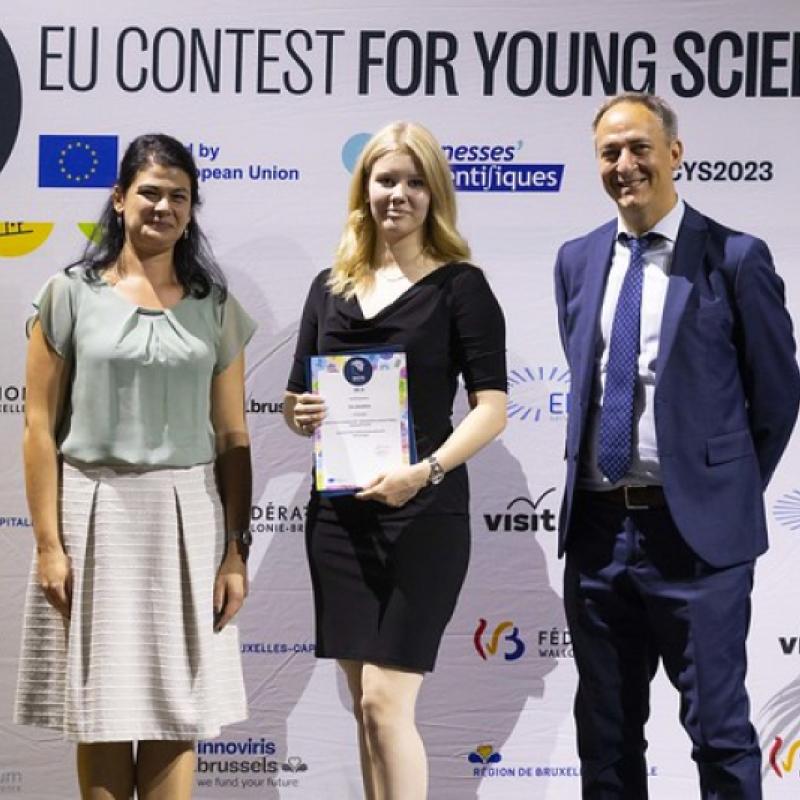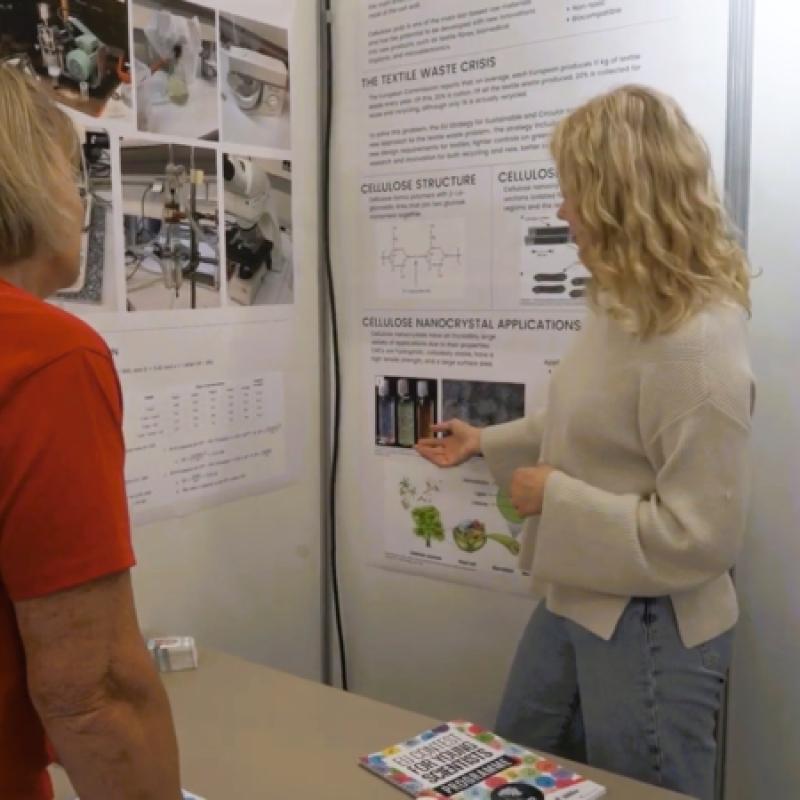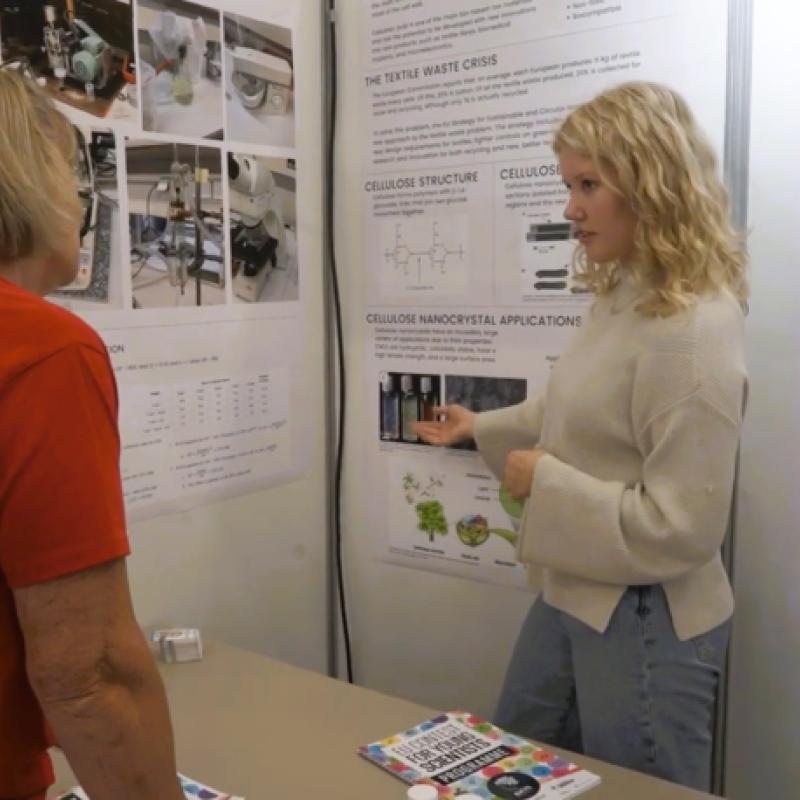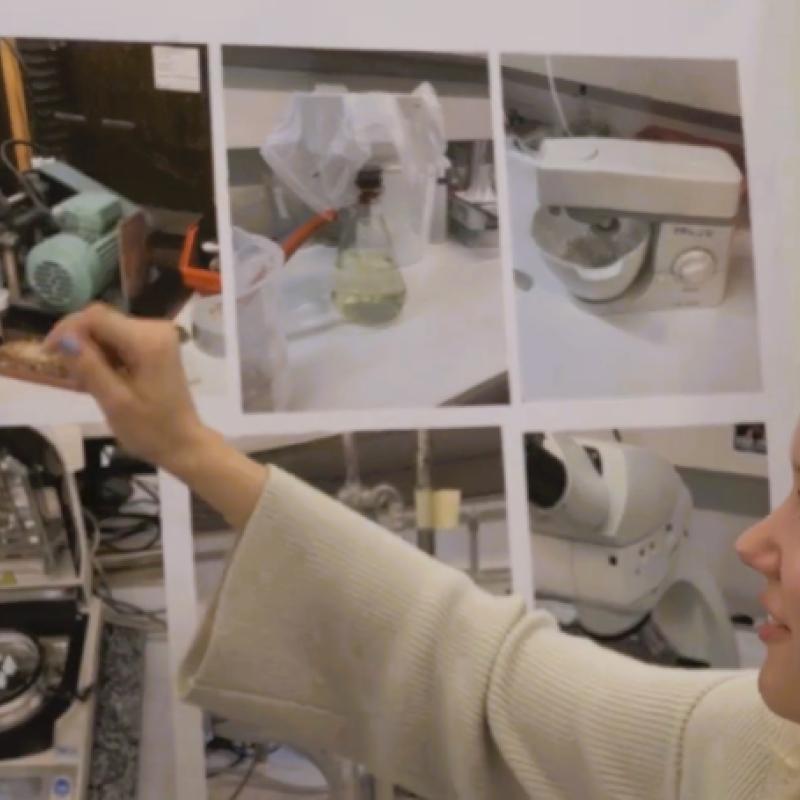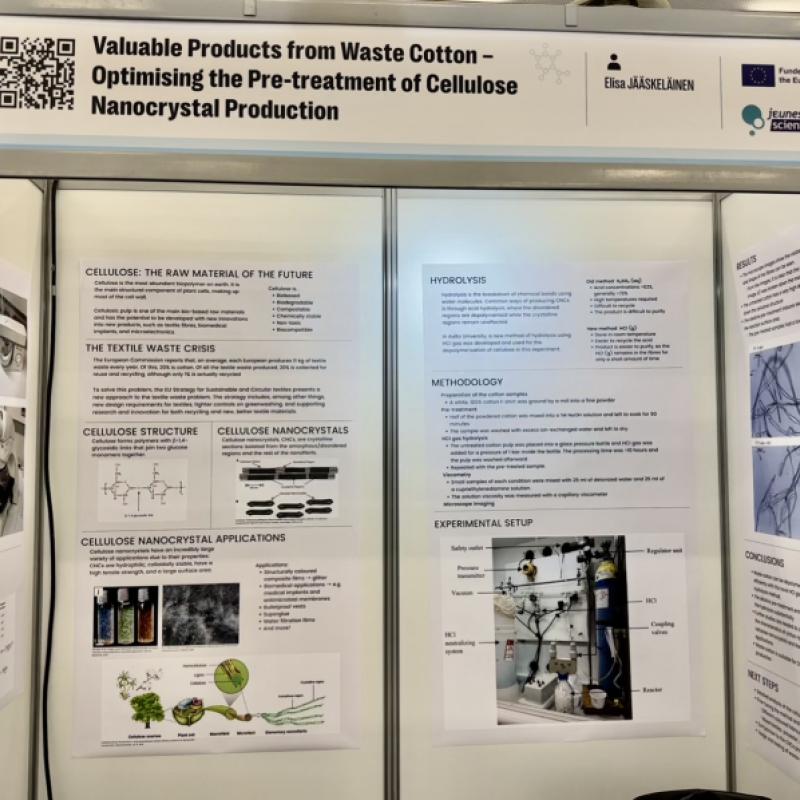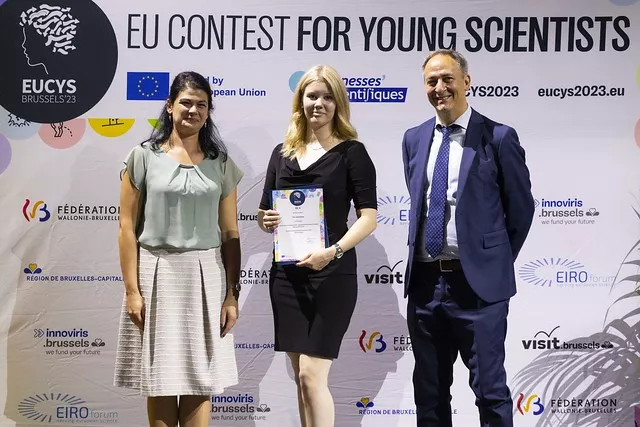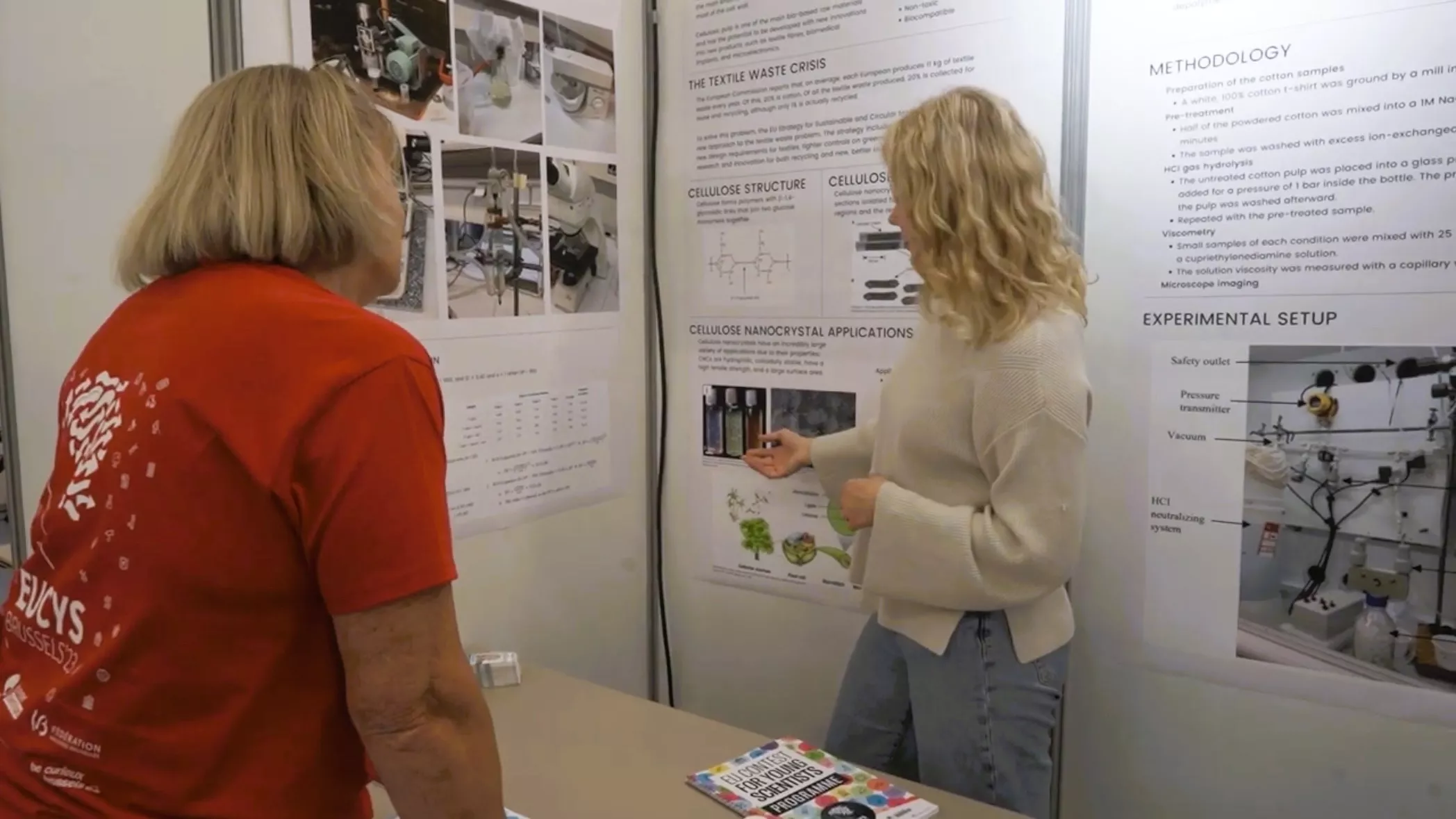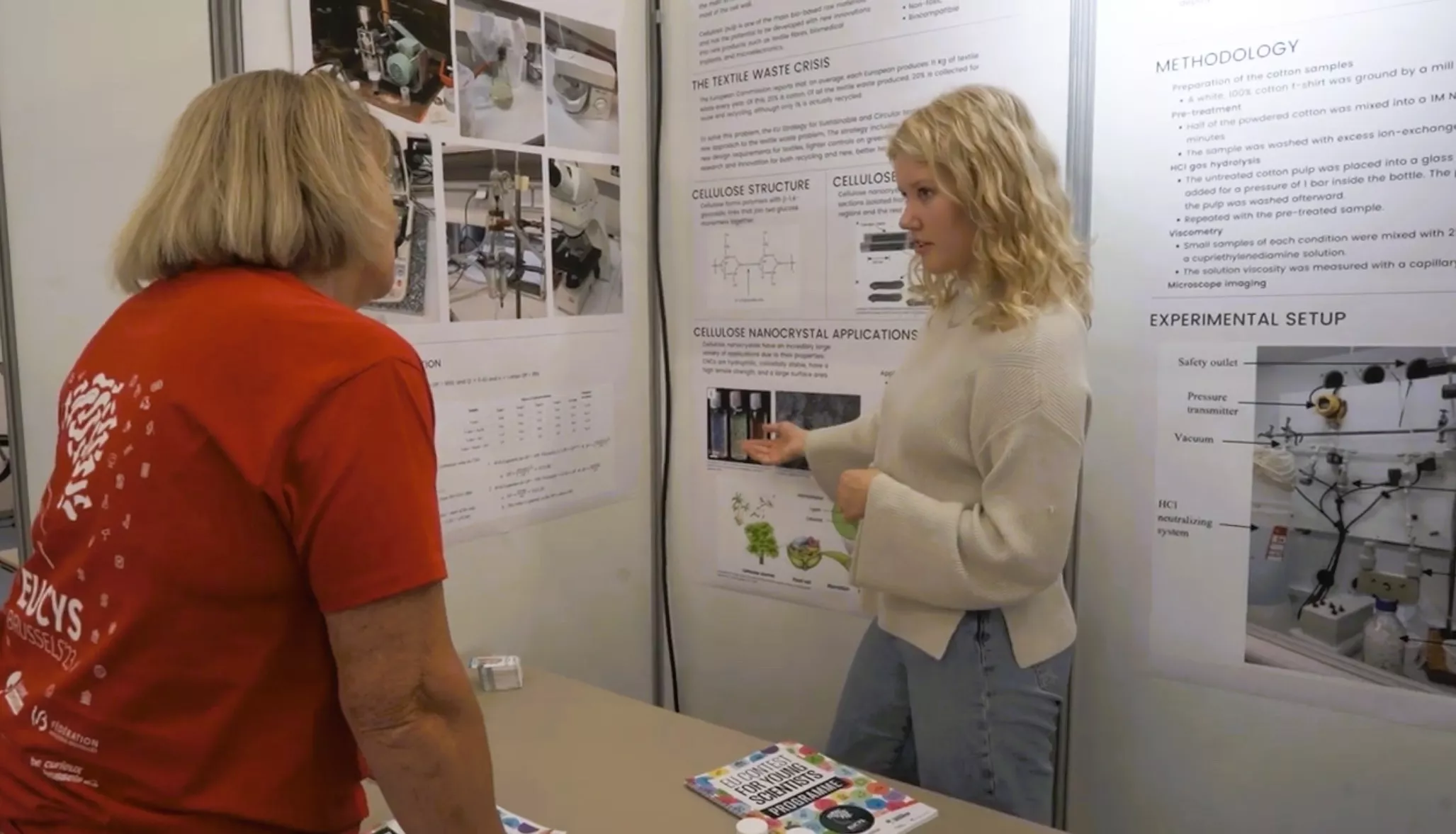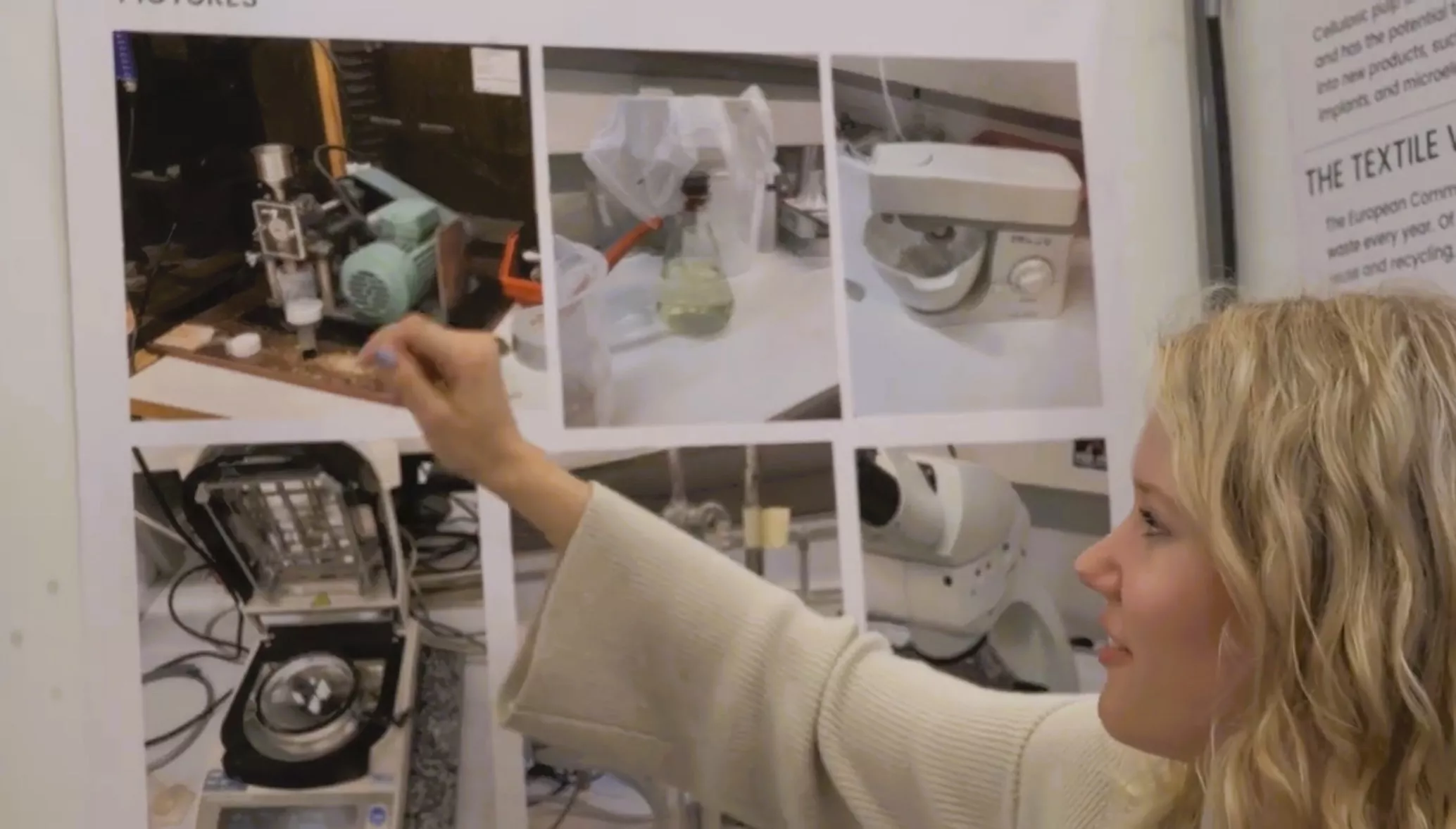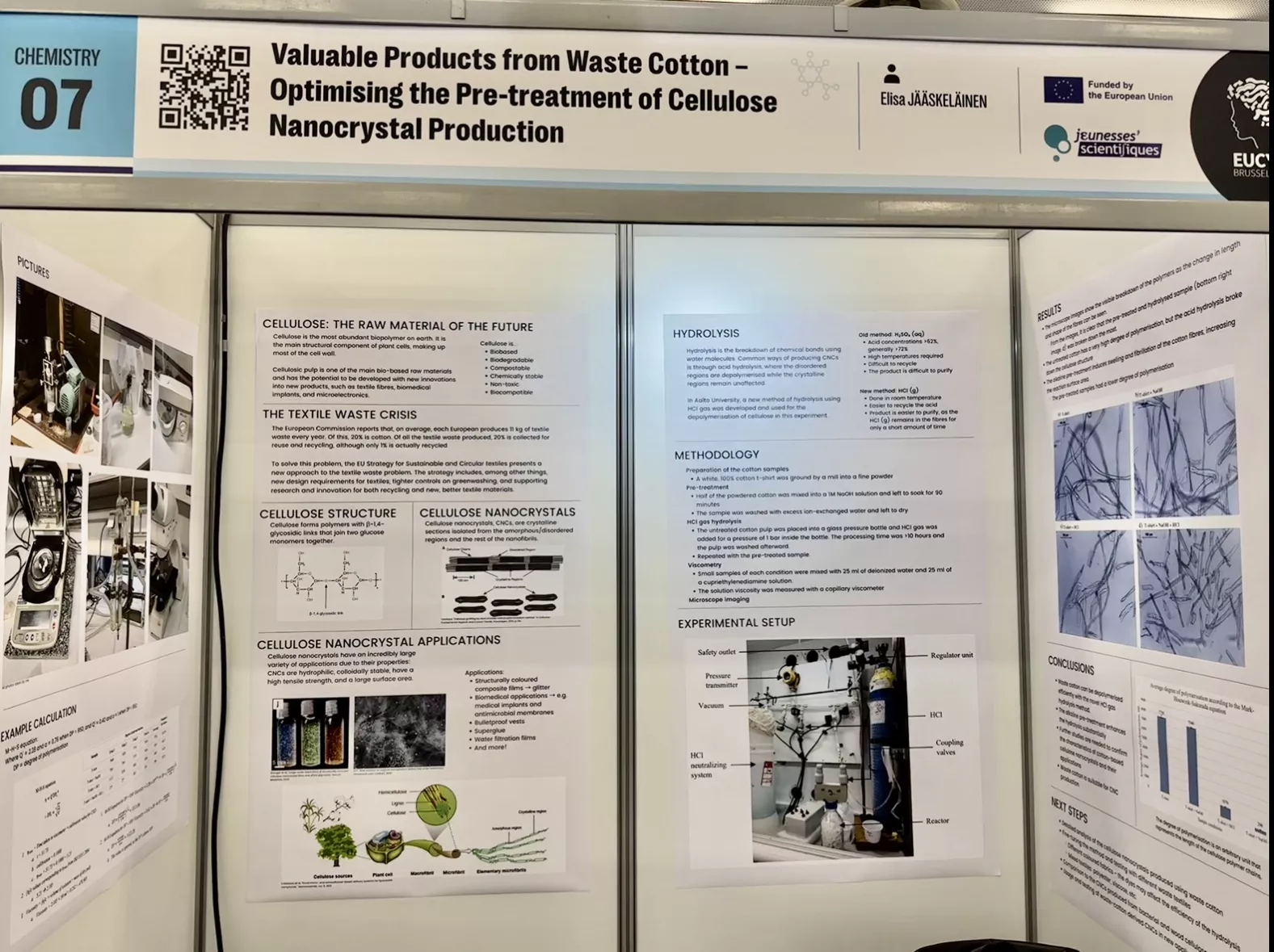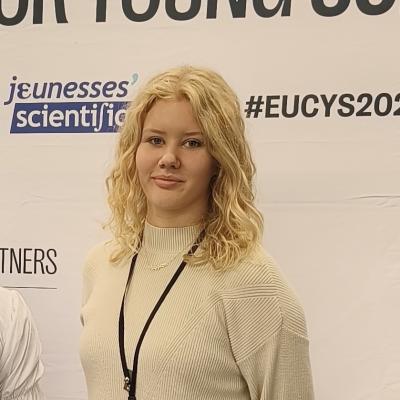
Elisa Jääskeläinen won the EUCYS 2023 bioeconomy prize for her work on optimising the pre-treatment of cellulose nanocrystals. This prize is a visit to Brussels with CBE JU to present her project to representatives of the European institutions, EU, and national policymakers and stakeholders of the circular bio-based sector.
19-year-old Elisa Jääskeläinen was announced the winner of the bioeconomy prize presented by CBE JU at the EUCYS 2023 edition held in Brussels (Belgium) last September. CBE JU’s Acting Executive Director, Nicoló Giacomuzzi-Moore, handed out the prize and congratulated the winner: 'The EUCYS contest gives young scientists and innovators in Europe a platform to showcase their projects with high potential to shape the future of Europe. CBE JU will continue working with the European Commission to encourage young scientists like Elisa to pursue ground-breaking research in the circular bio-based sector.'
CBE JU will continue working with the European Commission to encourage young scientists like Elisa to pursue ground-breaking research in the circular bio-based sector.
CBE JU’s Acting Executive Director Nicoló Giacomuzzi-Moore
Giving value to waste cotton
Currently enrolled at Aalto University in Espoo (Finland), Elisa is driven by her desire to tackle the global waste crisis. During her studies, she discovered that only one per cent of textiles worldwide are recycled, and their only application is to be repurposed. The young researcher examined the existing literature and realised that cotton fabric had not been previously used to produce cellulose nanocrystals (CNCs) with the gas-phase hydrolysis method. Elisa's project has developed a low-cost, sustainable, and eco-friendly material made from waste cotton by upcycling it into cellulose nanocrystals.
Elisa used a t-shirt, that otherwise would have gone to landfill, as the start of the research. Since cellulose has a wide range of applications, the project aimed to determine whether it could be used as a raw material for cellulose nanocrystals using a reactor built and patented by a team of scientists at Aalto University. The Finnish student then focused on the preparatory steps for cellulose nanocrystals production by combining the hydrolysis step with a relatively simple pre-treated sodium hydroxide. The extraction of CNCs from the fibres required a few more steps, but cotton fabric was then determined to be a viable method for their production. The young scientist investigated the effect of an alkaline pre-treatment on the degree of polymerisation of cotton after hydrolysis with gaseous hydrochloric acid.
The research results were very promising, as the pre-treatment decreased the degree of polymerisation of the hydrolysed cellulose fibres by almost 700 units, from over 1,000 to less than 300. Therefore, the outcome of this research showed that discarded textiles around the globe could get a second upcycled life after all.
What is EUCYS?
Every year, the European Commission organises a contest for young scientists, which was set up to promote the ideals of cooperation and exchange between young scientists. The European Union Competition for Young Scientists (EUCYS) serves as an annual showcase of the best of European student scientific achievement, giving students the opportunity to compete with the best of their contemporaries at a European level. The EU Contest for Young Scientists is part of the Science and Society activities managed by the Directorate-General for Research & Innovation of the European Commission. Since 2016, CBE JU has supported the contest by sponsoring the bioeconomy prize. The awarded project shall use raw materials of biological origin in a sustainable, renewable, and innovative way whilst promoting scientific research and raising environmental awareness. The winners will visit the CBE JU Programme Office and EU institutions in Brussels, as well as some of the CBE JU-funded projects.
